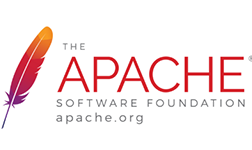
Apache Software Foundation Unveils Cassandra 5.0 with Enhanced AI and Data Security Features
DENVER, Oct. 7, 2024 — The Apache Software Foundation (ASF), the all-volunteer developers, stewards, and incubators of more than 320 active open source projects and initiatives, today announced Apache Cassandra 5.0. Cassandra is an open source, highly performant, distributed database management platform.
 As a NoSQL database, Apache Cassandra handles massive amounts of data across load-intensive applications with high availability and no single point of failure. Cassandra’s largest production deployments include Apple, Netflix, Huawei, Walmart, and numerous other organizations worldwide.
As a NoSQL database, Apache Cassandra handles massive amounts of data across load-intensive applications with high availability and no single point of failure. Cassandra’s largest production deployments include Apple, Netflix, Huawei, Walmart, and numerous other organizations worldwide.
“Apache Cassandra 5.0 represents a significant leap forward in distributed database technology,” said Dinesh Joshi, Vice President of Apache Cassandra and Project Chair. “This release brings groundbreaking features that enhance performance and scalability and position Cassandra at the forefront of AI-driven data management.”
About Apache Cassandra 5.0
Cassandra 5.0 introduces new features and improvements that enhance its capabilities for modern, data-intensive applications. Key highlights include:
- Storage Attached Indexes (SAI): Enhances query flexibility and performance, especially for large datasets, allowing for more efficient and versatile data retrieval.
- Trie Memtables and Trie SSTables: Optimizes memory and storage usage, significantly improving database performance without requiring changes to existing data models.
- Unified Compaction Strategy (UCS): Enhances operational efficiency by automatically adapting to changing requirements, reducing manual intervention in data organization.
- Vector Search: Introduces native support for artificial intelligence (AI) and machine learning applications, enabling semantic search capabilities crucial for next-generation applications.
- JDK 17 Support: Upgrades to Java Development Kit 17, bringing substantial performance improvements and new language features.
- Dynamic Data Masking: Enhances data security by allowing sensitive information to be obscured dynamically during queries without altering the stored data.
- Mutual TLS Authentication: Brings certificate based authentication and authorization to Apache Cassandra allowing the users to authenticate with no passwords required.
“Apache Cassandra 5.0 is the culmination of years of innovation and community collaboration,” said Patrick McFadin, Apache Cassandra Committer. “With features like Storage Attached Indexes and Vector Search, we’re not just improving performance; we’re opening up new possibilities for how organizations can leverage their data in the age of AI.”
The Apache Cassandra community has rigorously tested Cassandra 5.0, employing advanced methodologies, including property-based testing, fault injection, and extensive performance benchmarking to ensure the highest level of reliability and stability.
“In our experience, Apache Cassandra continues to set the standard for scalable, distributed databases,” said Jon Haddad at RustyRazorblade Consulting. “The introduction of features like Storage Attached Indexes in version 5.0 allows us to push the boundaries of what’s possible with our data-driven applications.”
Cassandra is utilized by organizations spanning technology, finance, healthcare, and e-commerce, among others. The software powers critical applications that demand high scalability, performance, and reliability.
For downloads, documentation, and ways to become involved with Apache Cassandra, visit https://cassandra.apache.org.
About The Apache Software Foundation
Founded in 1999, the Apache Software Foundation (ASF) exists to provide software for the public good with support from more than 75 sponsors. ASF’s open source software is used ubiquitously around the world with more than 8,400 committers contributing to 320+ active projects including Apache Superset, Apache Camel, Apache Flink, Apache HTTP Server, Apache Kafka, and Apache Airflow. The Foundation’s open source projects and community practices are considered industry standards, including the widely adopted Apache License 2.0, the podling incubation process, and a consensus-driven decision model that enables projects to build strong communities and thrive.
ASF’s annual Community Over Code event is where open source technologists convene to share best practices and use cases, forge critical relationships, and learn about advancements in their field.
Source: Apache Software Foundation



























